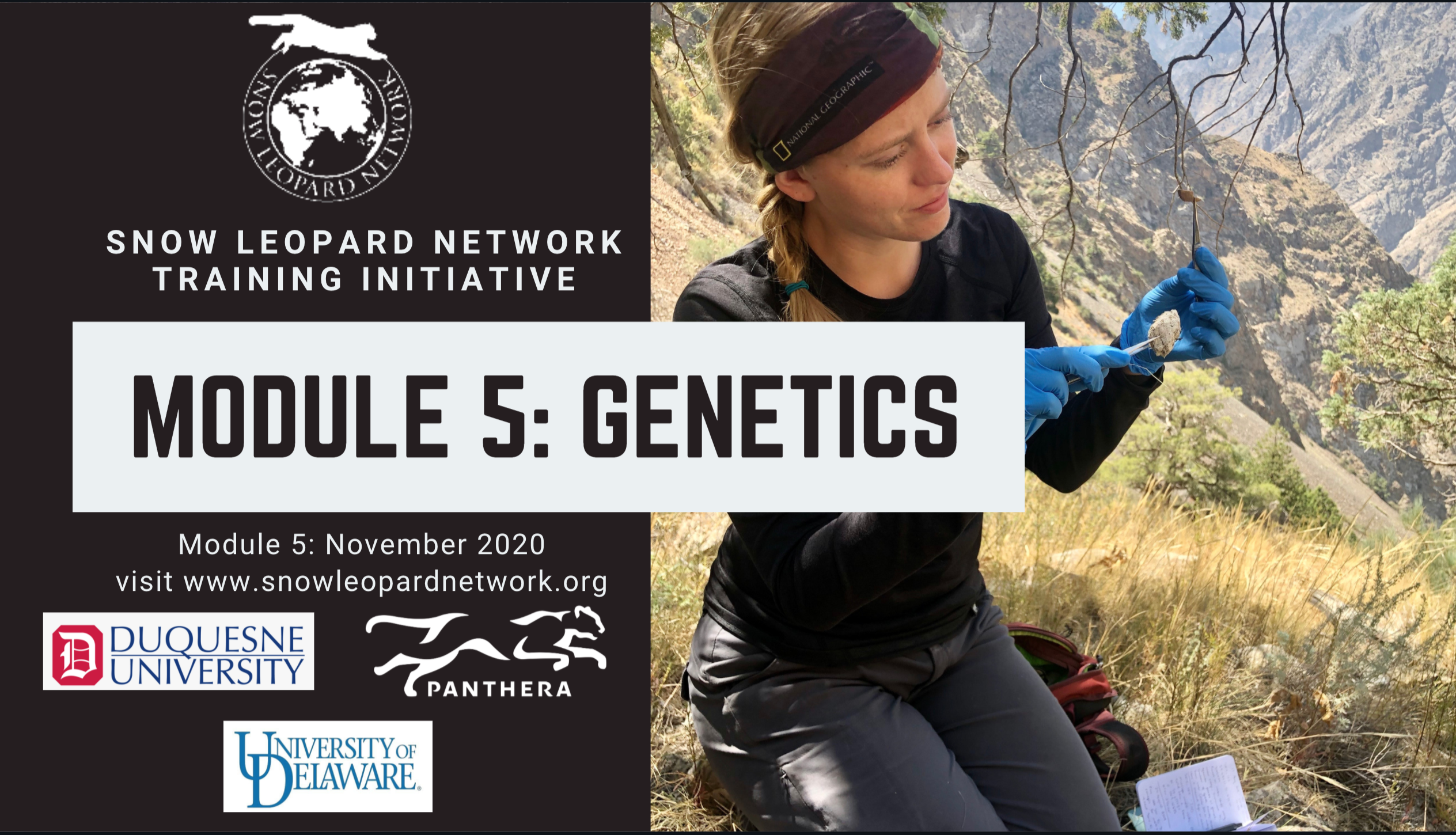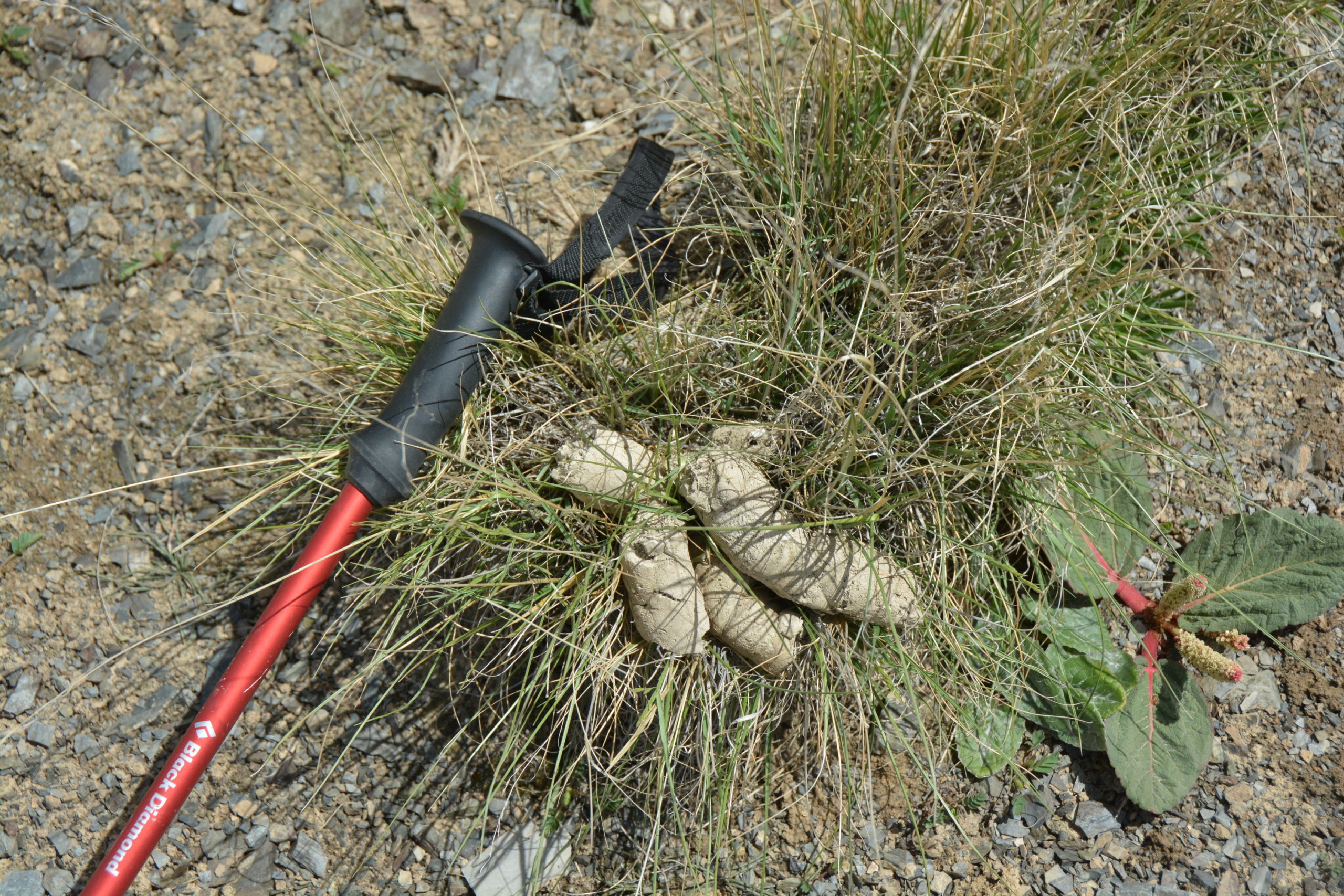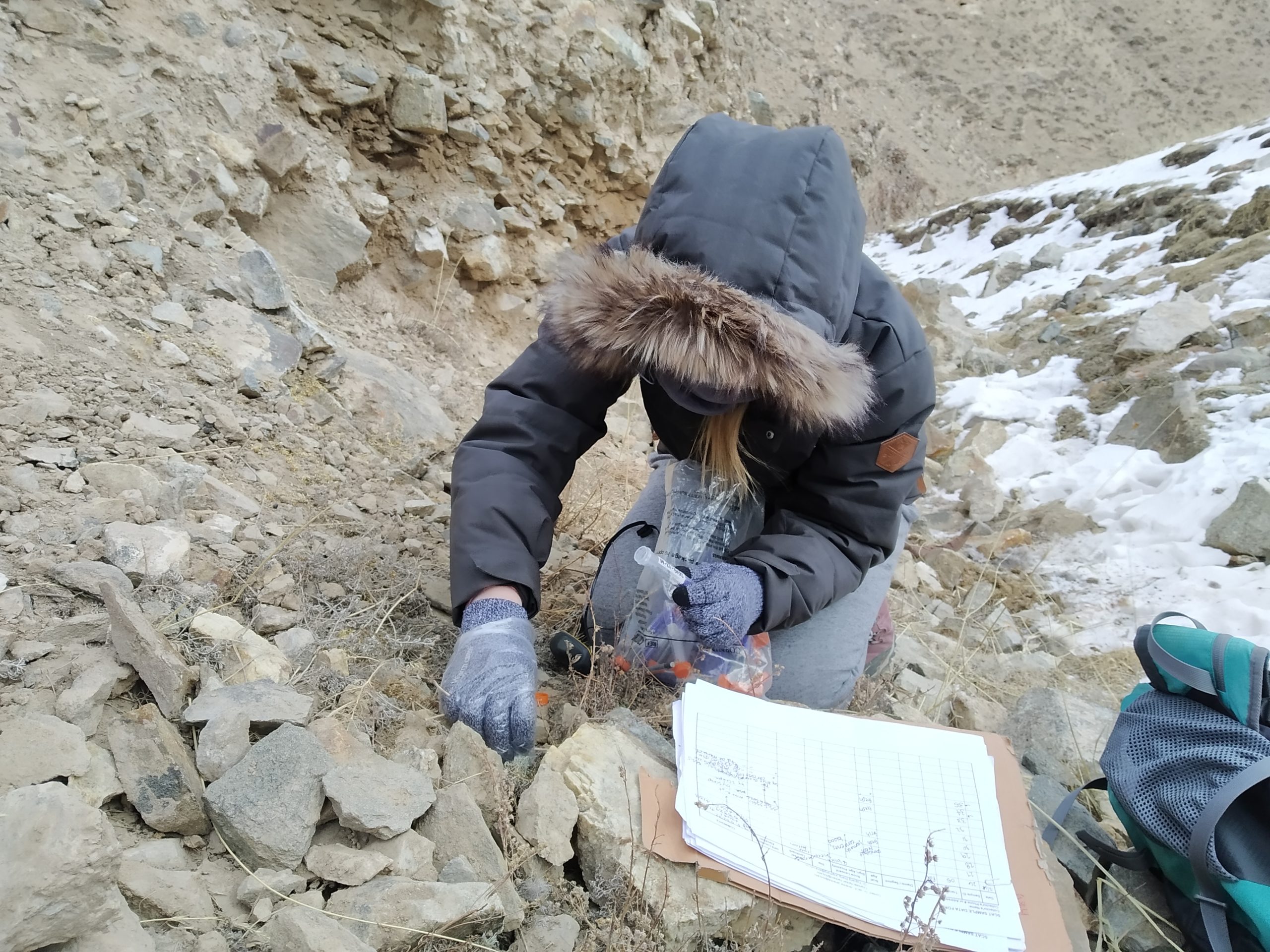
This course is Module 5 of the Snow Leopard Network’s training initiative. This Module is offered thanks to the support of Panthera, Duquesne University and the University of Delaware.
Course Content
Snow leopards are difficult to observe and therefore collecting adequate data to address conservation, research, and monitoring questions can be challenging. This species persists at low densities, requires large tracts of habitat, and is capable of long distance dispersal. Most snow leopard populations exist in naturally fragmented landscapes and face increased impact and fragmentation from anthropogenic activities, all of which may disrupt various demographic processes important for population persistence. While camera traps have greatly aided in addressing some of the challenges of collecting data on these elusive animals, molecular techniques can provide the same, and in some cases superior, information compared to that of photo images. However, the investment in developing and using molecular techniques is largely underutilized across the snow leopard conservation community.
The Genetics Training Module, offered through the Snow Leopard Network, is meant to provide participants with a basic understanding of wildlife genetics and its applications to designing effective conservation programs for snow leopards. This course will largely serve as an introductory primer to more complex techniques, analyses, and applications of noninvasive genetics, but will cover a wide range of topics relevant to the leading approaches. We will start by outlining the power and utility of genetics in wildlife conservation. We will provide examples from the real-world applications of these methods for improving species conservation and management. Then we will cover the essentials for noninvasive sample collection, processing in the lab, and molecular approaches for species, sex, and individual ID. At the end we will introduce the most recent advances in utilizing Next Generation Sequencing. Finally, we will wrap up the course with an open round-table discussion on how to expand on these methods in range countries, and talk about the primary goals, opportunities, and challenges.
Meet the Trainers
Dr. Byron Weckworth is the director of Panthera’s Snow Leopard and Conservation Genetic programs. His research experience has involved work across a variety of ecosystems and species, including wolves,white-tailed deer, black bears, caribou, moose, and, of course, snow leopards. Byron’s work aims to address a wide spectrum of ecological and evolutionary questions pertinent to successful conservation.
Dr. Jan E. Janecka is an Associate Professor in Biological Sciences at Duquesne University. He published a study evaluating the utility of noninvasive genetics for monitoring snow leopards in 2007. Since then, he has worked with partners in Mongolia, Nepal, Pakistan, India, Mongolia, China, Kyrgyzstan, and Bhutan applying genetics to snow leopards to understand their distribution, abundance, diet, phylogeography, landscape connectivity, evolution, and adaptations to high altitude.
Imogene Cancellare is a PhD Candidate at the University of Delaware and is a partner of the Conservation Genetics Program at Panthera. Her research focuses on understanding the ecological and evolutionary patterns that impact snow leopard population connectivity range-wide. Her work aims to address the relationships between gene flow and landscapes at varying spatial scales to better inform conservation efforts, and to increase capacity for wildlife genetics research across Central Asia.
Charlotte Hacker is a PhD candidate at Duquesne University and research associate with the Snow Leopard Conservancy. Her research focuses on the use of molecular techniques to better understand snow leopard phylogeography, gene flow, and diet. Her work aims to contribute to current knowledge of the species’ population status at local and range-wide scales, as well as current understanding of species ecology and coexistence with humans.
Criteria for participation
-
- Snow Leopard Network Member
- Experience or willingness to work on snow leopard conservation efforts
- Confirmed availability to attend all the four online seminars of a given module
- Number of participants is limited to 30
- Priority will be given to participants from snow leopard range countries
Planned Schedule
-
- 2 hour online Zoom Seminars take place every Monday of the month, November 2020 (4 Seminars; November 2nd, 9th, 16th, and 23rd) at 9:00 AM EST (20:00 Bishkek, Kyrgyzstan time).
- Additional group work, assignments or readings are likely to be organized by the trainers
- Please note we expect all participants to attend the complete set of Monday Seminars as they are interconnected and build on each other
- Details of each specific Seminar topic will be shared approximately 5 days beforehand; including any expected preparations by participants.
Deadline for Applications
-
- Friday, October 16th, 2020. Please note places are limited so please do not delay in applying.
- Please fill in the following APPLICATION OPEN


